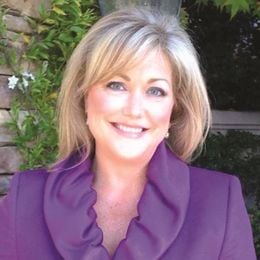The Sibling Caregiver
A new study shows that those attending to the special needs of a brother or sister need support
Diana Bozza and Debbie Faraday, 62, are identical twins, but their lives veered in sharply different directions 10 years ago, when Debbie was diagnosed with Alzheimer's disease. After their parents had both passed away a few years later, Diana stepped into the role of primary caregiver for her sister.
When we picture a "typical" family caregiver, we tend to envision a middle-aged woman attending to her mother or father. But as Americans live longer, more siblings are assuming such duties for each other. Most have grown up with a brother or sister who has a condition like Down syndrome, cerebral palsy or autism, and take on primary responsibility for them when their parents die. Others, like Bozza, become caregivers because of a sibling's injury or accident; after a diagnosis of a debilitating illness, like Alzheimer's; or when a brother or sister in the military is disabled in combat or suffers traumatic brain injury.
(MORE: Caregiver Support: What Parents of Wounded Veterans Need)
A new Easter Seals study of sibling caregivers found that about half (47 percent) had always planned to care for a brother or sister one day because of their sibling's existing long-term needs; 80 percent say they are close and that their relationship enhances their life. Still, only 3 out of 10 said they felt fully prepared for the role when the time came. Most family caregivers — whether children, spouses or parents — report feeling unprepared for the job, but experts say siblings, surprisingly, tend to be at a particular disadvantage because parents often avoid having a conversation with them about the future care of their special-needs brother or sister.
"What really surprised me is how often older parents refuse to create a 'successor plan,' even though their biggest fear is who will care for their special-needs adult child when they are gone," says Joanne Gruszkos, national program director for special care at MassMutual Financial Group, which co-sponsored the Easter Seals research. "This puts an extraordinary burden on the 'well sibling' or siblings, and creates more stress and fear for families than is necessary."
Gruszkos believes too many sibling caregivers are dangerously unprepared for the financial impact of their new role. "Half have no financial plan," she says. But they should: According to the National Alliance for Caregiving, sibling caregivers tend to be in the role an average of 7.6 years, three years longer than family caregivers overall; and 25 percent report that the task carries a financial burden, compared with 10 percent of all family caregivers.
(MORE: Caregivers for People With Dementia Need a Break)
While the Easter Seals study found that 75 percent of sibling caregivers report that it has become a full-time job, Gruszkos says, "almost one-third don't receive any type of support — emotional, physical or financial" from other family members.
The Impact on a Family
Bozza's caregiving journey began after several years of wondering if her sister had become an alcoholic or had an undiagnosed health issue. "Debbie started forgetting things, such as family Thanksgiving dinner, and eventually she lost her job and then her house, because she forgot to pay her mortgage," Bozza says. "With this disease, it is hard to recognize when someone is declining, particularly if they live alone. They say things like, 'Don't worry about me,' and denial seems to be happening for both of you."
Finally, Bozza had seen enough. Her sister's doctors were skeptical that she could have Alzheimer's at age 52. So Bozza traveled with Debbie from their hometown in Virginia to The Johns Hopkins Hospital in Baltimore, where a brain scan revealed the likelihood that she did have Alzheimer's. (The condition cannot be definitively diagnosed until the patient has died and an autopsy is performed.)
Debbie moved in with her parents at that point. After their parents died, Bozza, who is married, did not move her sister into her home. But she did take over all the details of Debbie's care, including the research that helped locate an assisted living facility for her sister and then, when her condition progressed and a greater level of care was needed, the residential home which eventually welcomed her.
Bozza also pays bills not covered by Medicare or other insurance benefits, makes legal decisions on her sister's behalf, and has done her best to stay by her side, first as she lost her memory, then much of her ability to speak and walk. Most days, Debbie does not recognize her identical twin.
(MORE: How Online Volunteers Support Caregivers)
Bozza calls her sister's condition "heartbreaking," but says she has found some comfort in an Alzheimer's Association support group for caregivers of people with an early onset of the disease.
"I have learned through my group that even though my sister doesn't recognize me, she takes comfort that I am there and that makes me feel good," Bozza says. Accepting her sister's diagnosis was the most difficult part of the journey, she says, but being able to talk to other caregivers helped her to get to that moment.
There will be more challenges ahead: Diana recently found out that her husband also most likely has Alzheimer's disease. "Caring for Debbie has given me a dress rehearsal for what the next years of my life will hold," she says, "and in some ways I'm grateful for that."

Sherri Snelling is a corporate gerontologist, speaker, and consultant in aging and caregiving. She is the author of “Me Time Monday – The Weekly Wellness Plan to Find Balance and Joy for a Busy Life” and host of the "Caregiving Club On Air" podcast. Read More

